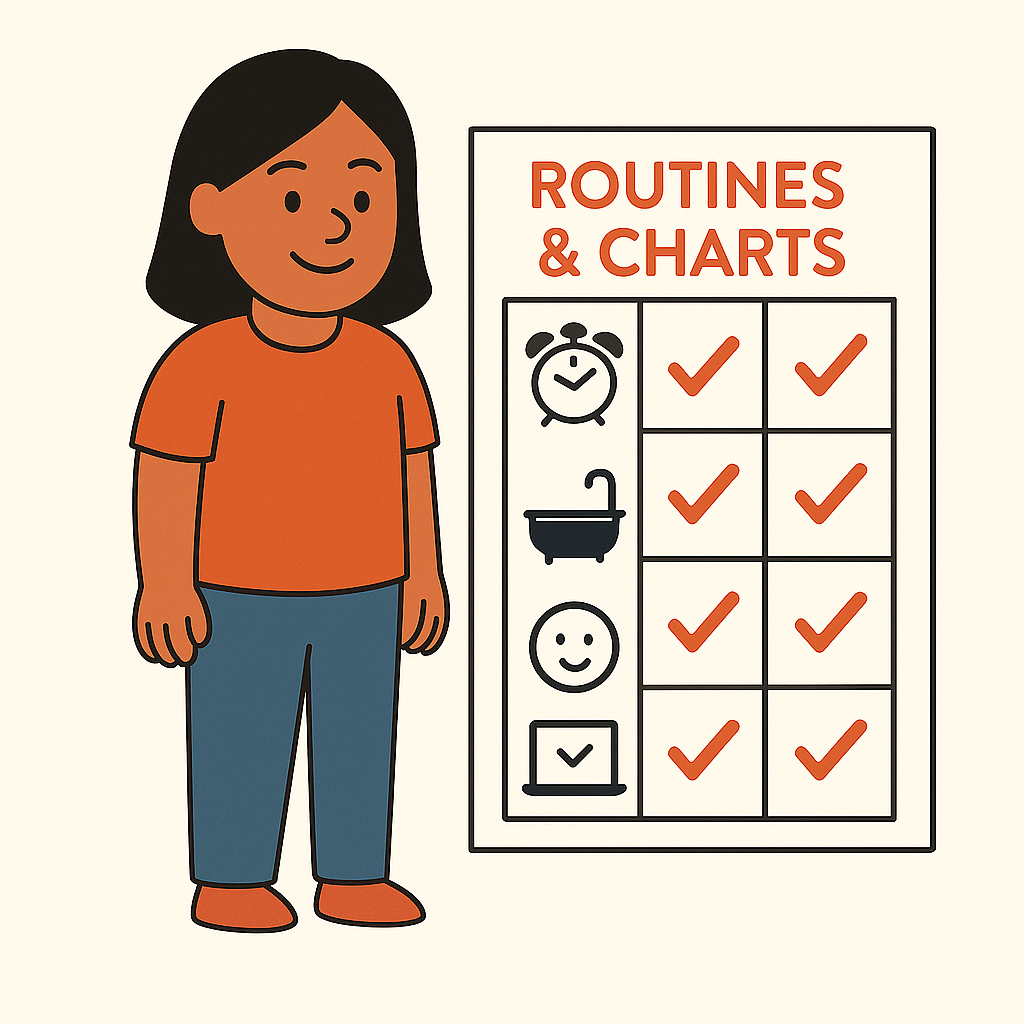Routines & Charts

Welcome to the Routines & Charts Hub
Raising children is filled with daily challenges—getting out the door, managing emotions, navigating chores, creating calm at bedtime. These aren't just tasks to complete—they're opportunities to teach life skills that will serve children for years to come.
This section was created for parents and caregivers who want to build structure at home without relying on sticker charts or rigid systems. The tools here are grounded in research and designed to support developmentally appropriate routines that encourage independence, self-care, and emotional regulation.
Why Routines & Chores Matter
Boost Executive Function
Systematic reviews link daily routines to improvements in self-regulation, academic readiness, and social-emotional learning.
Enhance Emotional Resilience
Consistent routines like sleep and bedtime rituals are strongly associated with better emotional regulation and mental health.
Build Skills Through Chores
From age 3 onward, children doing age-appropriate chores show higher self-esteem, academic outcomes, and life satisfaction.
Toddler Routines
Building Foundations Through Participation
Toddlers and preschoolers thrive on structure, repetition, and opportunities to 'do it myself.' At this stage, the goal isn't perfection—it's participation and predictability.
Available Tools
Visual Routine Charts
Morning/Evening routines with clear icons + simple language
Example: Wake up → Potty → Wash hands → Get dressed → Eat
'I Can Do It!' Self-Care Cards
Mini cards with images and one action each
Example: Put on socks, Wash hands - use as cue cards during transitions
My First Chores Chart
Age-appropriate 'helper jobs' framed as family teamwork
Example: Match socks, Feed pet with supervision, Put toys back in bins
Calm-Down Corner Setup Guide
Cozy space with sensory items and emotion face cards
Example: Pillows, squish toys, mirror, 'How I Feel' emotion poster
Parent Tips
Downloads
🗂️ Browse by Topic
Target specific areas of family life with focused tools and strategies
Morning/Evening Routines
Visual routines, sleep hygiene, and calming rituals
Household Contributions
Age-appropriate chores that build life skills
Emotional Routines
Tools for regulation and processing feelings
Weekly & Weekend Planners
Family organization and time management
Personal Self-Care
Building healthy habits and self-awareness
Foundational Principles
Developmentally Appropriate
Tasks and routines must match the child's age and emotional capacity
Self-Care, Not Control
Encourage internal motivation and reflection—not rewards or punishments
Family System Focus
Routines support everyone, not just kids
Modeling Before Delegating
Teach how to do something, not just what to do
Implementation Tips for Parents
Teach, Don't Tell
Model tasks, talk through the process, encourage repetition
Age-Appropriate Launching
Start with participation, scaffold to independence
Language Matters
Use phrases like "you're learning to..." and "can I help you?" to support growth
Routines + Discussion
Pair habits with short chats about feelings, choices, and effort
